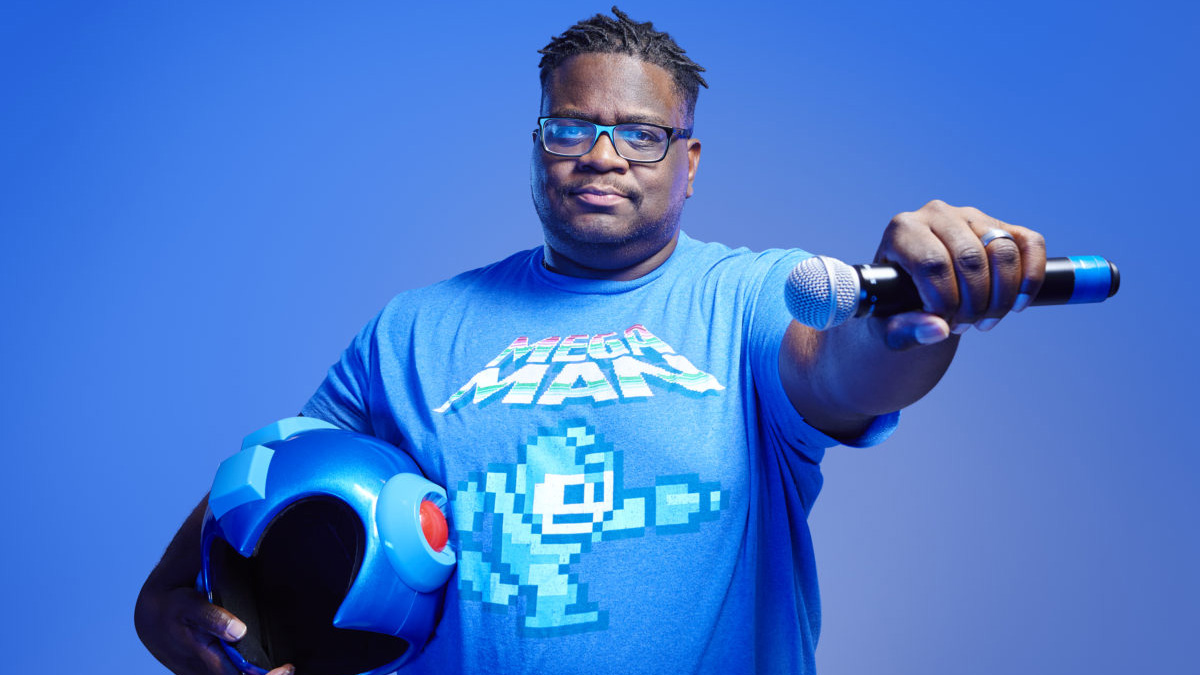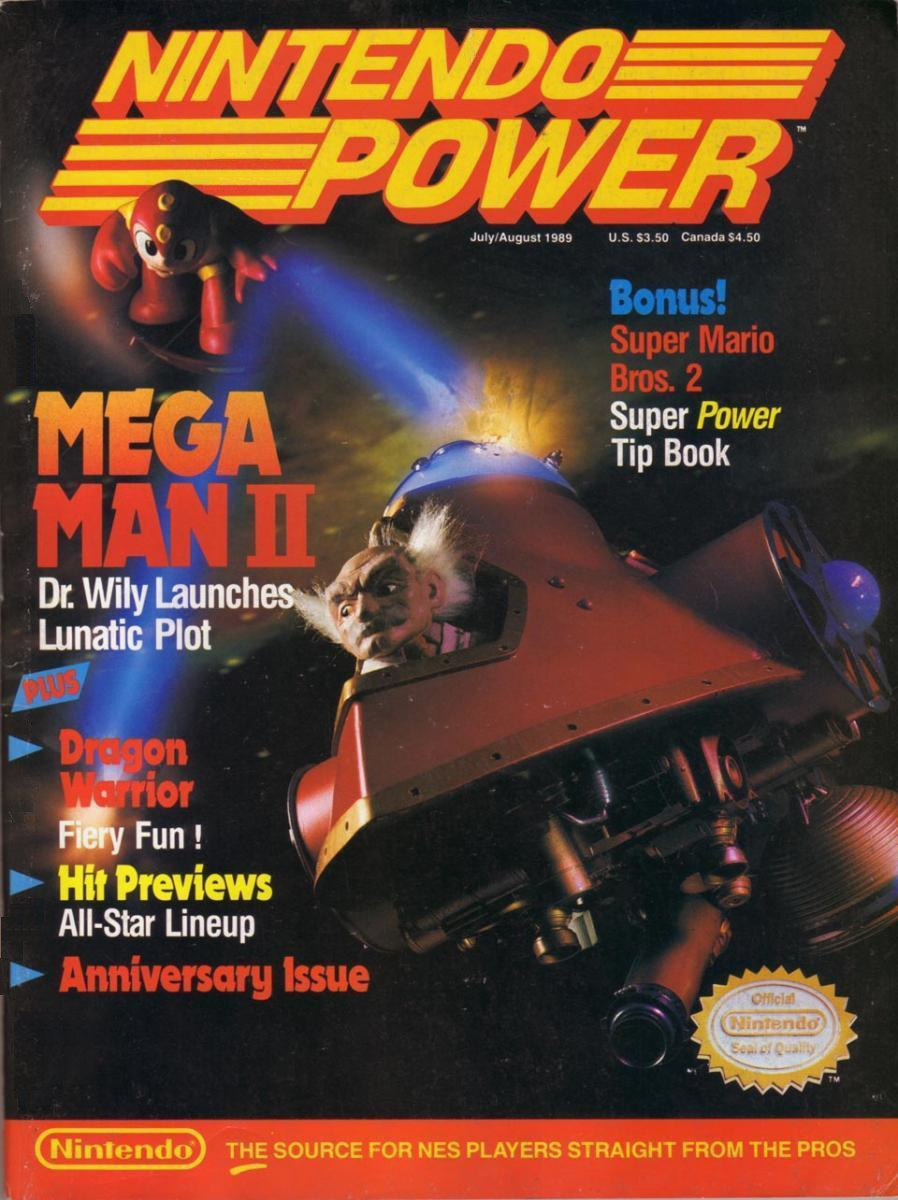A decade in, Mega Ran is still chip-hop's humble king
With his Final Fantasy 7 tribute Black Materia: The Remake, Mega Ran came full circle to the game that launched his career.

Raheem Jarbo's life changed in a single afternoon, 10 years ago.
"In 2011, my song Avalanche blew up on Reddit while I was in the middle of class teaching," he says. "I started getting texts, people being like 'Hey, man. You're going viral!' I looked back at the Reddit post I made and there were over 20,000 upvotes with people going nuts over it. They're emailing me, they're buying the album, they're supporting me. That same day I started penning my resignation letter, thanking my principal for everything. I told him 'I'm gonna chase my dream.' I didn't expect it to last nearly this long, but I'm so glad that it has."
I grew up in that 8-bit era... those sounds make me feel like I'm a kid again
Mega Ran
Jarbo, who performs under the stage name Mega Ran (and sometimes Random), released a hip hop celebration of Final Fantasy 7 called Black Materia in 2011. A decade into his full-time career as a musician, he followed Square Enix's lead with a new take on Final Fantasy 7 of his own: Black Materia: The Remake.
Mega Ran has been making music since the 8th grade, but Black Materia was one of his first video game-inspired albums to pop off in the early 2010s, carving out a space for him in the nostalgia-fueled "Chip-Hop" rap scene. It's a hype style of music geared towards gamers that relies on a healthy balance of clever references, wordplay, and careful splicing of video game soundtracks with trap production.
Each track Mega Ran hops on turns into a deep, creative exploration of a game's characters and plot. His flow always seems effortless, demanding the listener's attention (gamer or not) with a barrage of brilliant bars and a remixed beat that turns something old into something fresh. Despite his palpable impact on the music scene, he remains a humble figure, always pointing his passion back to the games themselves.
"I grew up in that 8-bit era, so it just takes me back to a time of innocence," Mega Ran says. "I read a quote that said 'Nostalgia is undefeated,' and it's true. A meaningful song can take you back to a moment, it will always feel good to you. There won't be a time where it doesn't feel great. That's why I listen and make this kind of music. Those sounds make me feel like I'm a kid again."
There's often a warden-like mentality when people speak about an older generation of games that they enjoy, but Mega Ran's sentimentality for the classics is surprisingly welcoming. It's obvious just from the smile on his face while he reminisces that he's found deep joy in these soundtracks. He's on a mission to put his own spin on them and spread that joy tenfold.
Keep up to date with the most important stories and the best deals, as picked by the PC Gamer team.
In his Mega Man fan tributes, a Scott Pilgrim vs. the World: The Game freestyle, and a featured performance on the official Mortal Kombat 11 soundtrack, he consistently nails the tone and vibe of each world he raps about. Ten years after the original album changed his life, Mega Ran has released Black Materia: The Remake, a decade-in-the-making collaborative reimagining of the viral hit. Watch out, Sephiroth—Mega Ran is charging into the 2020s gun-arm blazing.
New year, new dimension
"I think the difference in these two albums is the same as the difference between 1997's Final Fantasy 7 on the PlayStation and 2020's Final Fantasy 7: Remake for the PlayStation 4. It's taking these two-dimensional things and turning them three dimensional, it's a process of rebuilding it all from the ground up—it's not simple," says Mega Ran. "That's what we did for all of these tracks. It has been a welcome challenge. We knew we had to make it epic. I've never really had pressure and expectation as an independent artist who has a small, enthusiastic fanbase, so I put the pressure on myself and everyone I worked with because I knew we had to top what we had already created."
Black Materia: The Remake does feel like a remaster of all of the ideas from the original, each single showing how much Mega Ran has grown as an artist over the years. The bars are just as charming, but now have a crisper quality to them, punctuating heartfelt moments and Final Fantasy 7 puns with impressive drums and perfectly prepared samples. All of this is happening on top of hip-hop flips of Nobuo Uematsu's Final Fantasy 7 soundtrack provided by producers like DN3, RoboRob, and Lost Perception.
"It has not been easy. Some people fell off, stopped making music, had family stuff go on, didn't see the vision, so we had to make a lot of changes. I think the best possible version of this album is out now, and I'm super excited about it," says Mega Ran. "It has not been easy, and I didn't expect anyone else to have as much passion for this project as I had. So I understand some people will come and some people will go. It's been quite a journey for sure."
The original Avalanche had personality to it, but the quality in the new version is remarkable
The first track Mega Ran made for this album was Avalanche, a follow up to the Reddit superhit that gave him the confidence to do music full-time. In it, he rhymes the complete context of Final Fantasy 7 and life in the eco-terrorist group Avalanche from the perspective of Barret Wallace. The original had personality to it, but the quality in the new version is remarkable, morphing the track into a fuller, neatly layered high production audio experience. His passion for Final Fantasy is forever infectious, hitting the listener with knowingly cheeky lines like "I always keep a handgun, no I mean that literally 'cause I've got a hand gun."
"[Avalanche] was probably my favorite. The fighting theme we sampled, 'Those Who Fight', is the theme you hear most in the game, so I knew this one had to be a banger. This is the song you hear at the beginning, middle, and end of the game. It can't get tiring, you can't be sick of it," says Mega Ran. "I really loved the way Avalanche came out. It felt like an anthem... At the end of the day my goal is to try to bring a few more people over to enjoy the genius of Nobuo Uematsu. That's what inspired me to keep going."
When talking to me about what prompted him to make the album, he brings it back to a weekend he had touring America in the late 2000s.
"I bought a used PSP from a guy on Craigslist. This was a hidden gem of a deal because he had it modded with a bunch of PS1 games. He had a ton of classics like Metal Gear Solid, Siphon Filter, and Final Fantasy 7," says Mega Ran. "I spent that entire flight playing FF7, that whole time in the hotel playing FF7, it was just on forever. The game was just as great as I remembered. The story was so well-written and drawn out. The characters were so relatable. I felt a real connection to them. They all came together like the perfect 3D RPG storm."
8-bit beginnings

Growing up, Mega Ran was a self-described nerd. He was also obsessed with hip hop. At 13 he pushed back against the "cool" expectations of rap by injecting gamer slang and spitting bars over a Street Fighter record. His stage name is an homage too—the Blue Bomber has been close to his heart since he picked up a copy of the Mega Man 2 Nintendo Power from 1989. People he knew back then often told him that nobody would listen to his music. They were absolutely wrong.
In 2021 Mega Ran has a sizable discography, sits at 80,000 dedicated monthly listeners on Spotify, and has written a memoir, Dream Master, about his life and music. He also won a Guinness World Record for rapping about Mega Man a lot. He's constantly on a creative grind and practicing to make sure his skills never dull—it's especially important to him to learn and adapt during the perpetual "same day" pandemic feeling.
"It has been a challenge, I will say that. There's some bright sides to it though," says Mega Ran. "I've been spending more time with my wife than I ever have before. I spent so much time touring on the weekends that we were used to not seeing each other, so us being able to get to know each other all over again has been super cool. On top of that, it's sped up a lot of things I'd been putting off like streaming on Twitch or finishing [Dream Master]. I feel like I work a hundred times harder than I did before just to keep things running and floating online. I'm literally doing 12-15 things, like I did an interview earlier today, then I did a podcast, then I streamed, now I'm talking to you. It's a whirlwind, but it's not all bad!"
Mega Ran released Black Materia: The Remake on streaming services on January 29, 2021, but that was just the start of what he plans to do with this remaster. His crowdfunding campaign to release the album on vinyl just closed with 336% funding, and he said he wants to spend the next little while focusing on crafting the visual side of the album (he even hinted at a potential stage play, once things outside aren't absolutely horrible).
"It feels like my crew and I used 2020 to build up the arsenal, so I'm really prepared to hit 2021 super hard on the productivity tip," says Mega Ran. 15 years into the game he's still going strong, radiating an aura of dedication, appreciation, and earnestness. "It feels like I'm sitting on some of my best work, and I'm excited about giving it to the world."

Fūnk-é is a Black, non-binary artist and writer+ who loves covering cyberspace communities and the ever evolving culture of videogames. At PC Gamer, Fūnk-é is an SEO contributor who whips up a slice of nice word pie. They never miss the opportunity to emphatically tell empathetic tales. Their favorite games are Mirror's Edge, Disco Elysium, and League of Legends. They will also crush anyone in Super Smash Bros. Ultimate.

